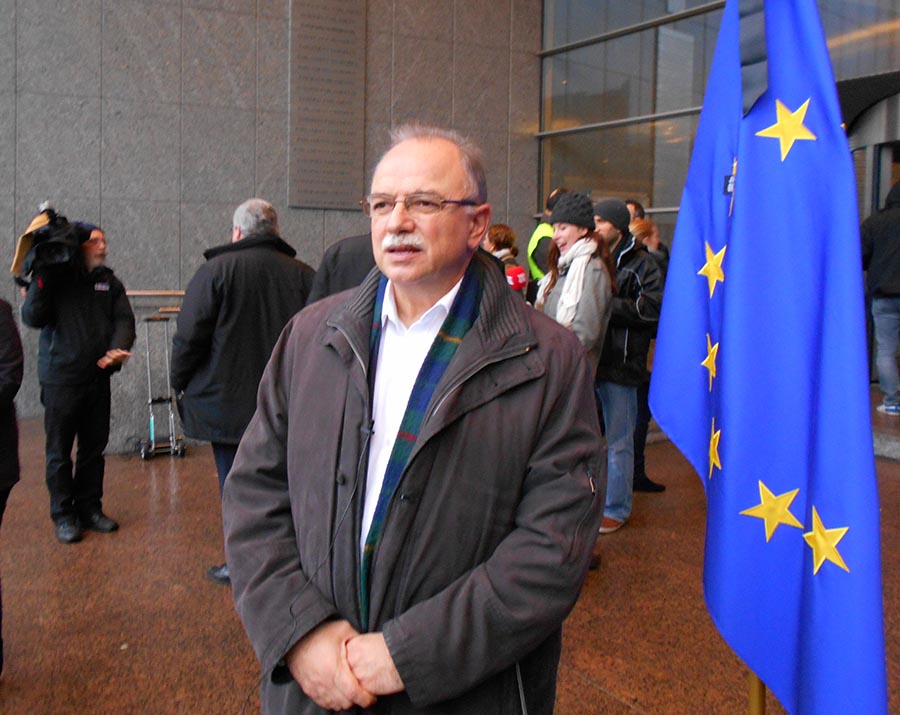The arrival of US President Barack Obama in Athens was coupled with the firm endorsement of the Greek government’s positions in three major topics: The first one refers to the immediate conclusion of the second bailout review and the decision on concrete debt relief measures by the end of December 2016; The second topic deals with the acknowledgement of Greece’s huge efforts to address the immense refugee crisis and the need for burden-sharing among EU member-states; The third topic departs from the Cyprus issue and the negotiations over a final resolution that includes as prerequisite the withdrawal of Turkish troops from the island.
The US President endorsed the efforts of Syriza government to push for another economic policy model for Eurozone — a model that enhances social and regional cohesion, boosts employment and eradicates social exclusion and poverty. The current neoliberal economic policy mix has severely damaged the European economies, failing to bring growth and tackle recession, while fuelling social anger and grievances into the support of far-right political parties. Obama’s endorsement of Greek government’s growth-oriented and redistributive model could drag Europe outside the ongoing crisis and ignite other progressive forces across the continent to do so.
On the debt relief issue, the momentum is ideal for bringing about specific short-term measures that could alleviate the domestic economy and accelerate the return to sustainable growth rates in 2017 and 2018. Similarly goes for Eurozone as well, as a growing number of member-states, including big economies like Italy, France and Spain, cannot abide by the requirements and inflexible rules of the Stability and Growth Pact that hampers growth strategies. European political leadership cannot deal with growing debt and continuous spending cuts, being forced by the German leadership to adopt further austerity measures.
On the refugee issue, implementation of relocation program is urgent priority. The aggressive and belligerent rhetoric of the Turkish President Erdogan against the EU-Turkey deal, as well as the recent statement of the President-elect Donald Trump on his intention to expel three million migrants cause uncertainty in global scale. The challenge of the refugee crisis is huge, and it is impossible for a state with a population of eleven million, like Greece, to bear the burdens of hosting tens of thousands of refugees and implementing cohesion policies amid underfinancial restraints. Greece remains a place of stability in the wider Mediterranean region in times of constant geopolitical shifts, but this is not enough to cope with all regional security challenges.
On the Cyprus issue, President Obama agreed with the stance of the Greek government that the withdrawal of Turkish troops is prerequisite for a deal. Negotiation talks between Cyprus President Anastasiades and Turkish-Cypriot leader Akinzi have advanced, but the UN should assume a more active role to bring both communities closer. A final solution for Cyprus will definitely increase geopolitical stability in the wider Middle East region, facilitating investments and economic activity and improving living standards.
President Obama also pledged to continue supporting the Syriza government in all big challenges it faces. This support is quite important and essential, not because it comes from the President of the United States, but mainly as it stems from a political figure that is leaving behind an important legacy in the field of enhancing social cohesion and wealth redistribution. It is certain that Barack Obama will keep influencing global politics after the end of his second mandate.
Source: http://www.huffingtonpost.com/entry/582c68a1e4b0466f4579332e?timestamp=1479309035966
16.11.2016







